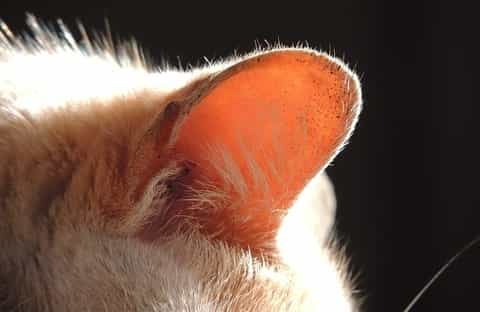Understanding the specific requirements and potential health issues of pet hedgehogs is crucial. Owners of hedgehogs frequently worry about mites, and we will now explore the potential spread of these parasites and provide important details regarding this matter.
Understanding Hedgehog Mites
Small mammals like hedgehogs can be infested by tiny parasites known as hedgehog mites or Laelapidae. These mites can invade the quills, skin, and ears of the hedgehogs. There are different types of mites that can affect hedgehogs, but the most common one is Caparinia tripilis.

Mites can lead to itchiness, dryness of the skin, shedding of quills, and in severe instances, anemia and weight reduction. These little creatures can be quite troublesome for hedgehogs and should be promptly treated to avoid any additional complications.
Contagious or Not?
Mites on hedgehogs can spread easily from one hedgehog to another within a household. If one hedgehog is found to have mites, there is a strong chance that the mites will transfer to other hedgehogs living nearby. The mites can be transmitted through direct contact, such as sharing the same housing, bedding, or interacting closely during playtime.
It is worth mentioning that hedgehog mites generally do not infect humans, but there is still a chance of getting bitten by them if you have close contact with a hedgehog that is infested. However, these mites cannot complete their life cycle on human skin and typically die within a few days.
Prevention and Treatment
To prevent mite infestations, it’s crucial to maintain good hygiene and cleanliness in your hedgehog’s living environment. Regularly clean their enclosure, bedding, and toys. Monitor your hedgehog’s coat and skin for any signs of itchiness or quill loss.
If you believe your pet has mites, it is advisable to seek guidance from a veterinarian who specializes in caring for exotic animals. They will conduct a comprehensive evaluation, which may include taking a sample of the pet’s skin to confirm the presence of mites. Depending on how severe the infestation is, the veterinarian may prescribe the suitable treatment, such as applying medication on the skin or administering oral anti-parasitic drugs.
It is important to separate the infected hedgehog from other hedgehogs and thoroughly clean the entire living space to stop the mites from spreading while undergoing treatment. Moreover, it is necessary to treat all hedgehogs in the household, even if they are not displaying any symptoms, as they could be carriers or vulnerable to becoming infested.
In Summary
Hedgehog mites are transmissible. They can spread through direct contact among hedgehogs or by sharing the same living space, bedding, or toys. While they usually do not affect humans, it is still essential to be careful when dealing with a hedgehog that has mites. Consistent hygiene routines, timely treatment, and isolation of infected hedgehogs are crucial in stopping the mites from spreading and maintaining the health and happiness of your hedgehog.





